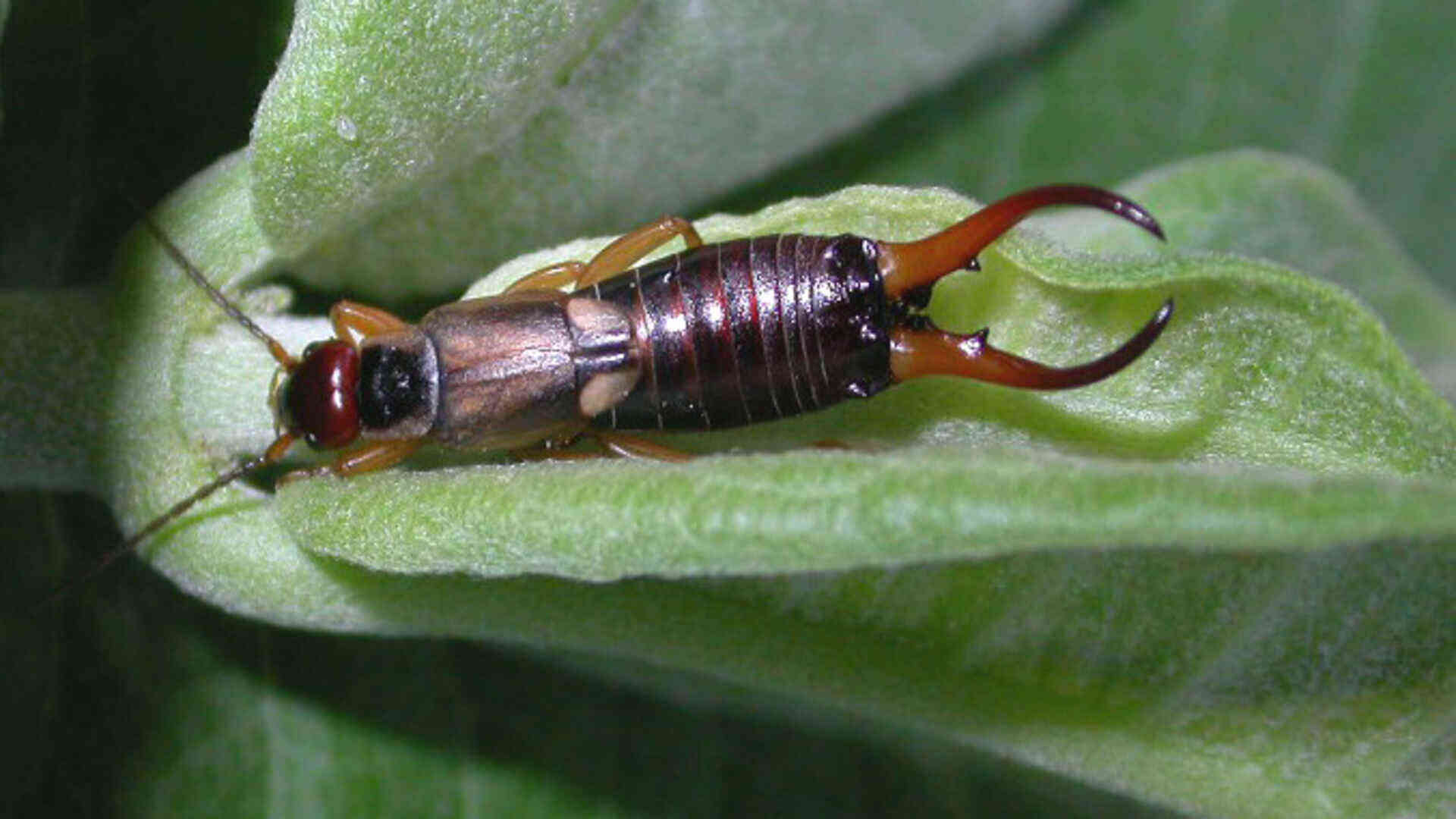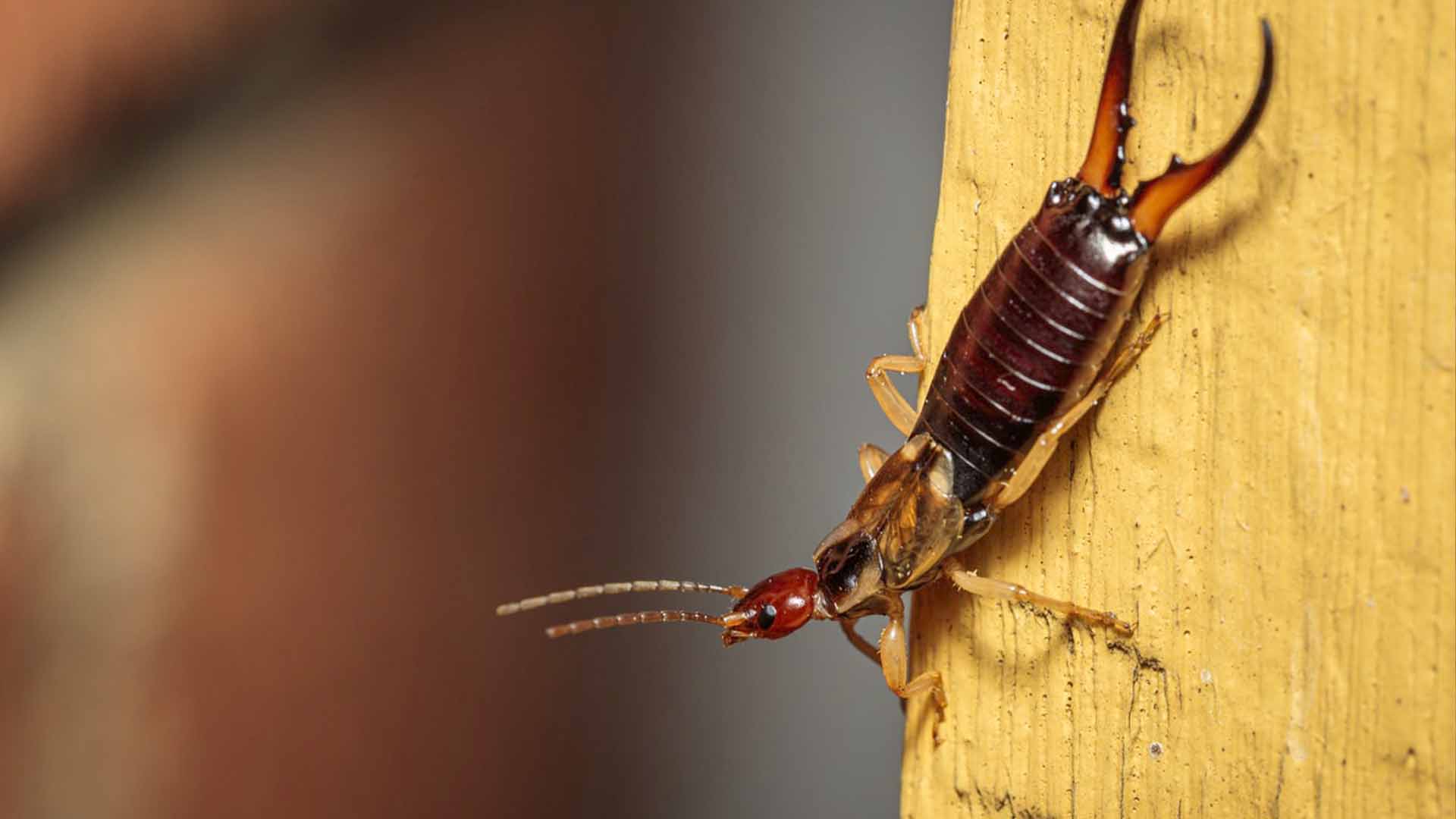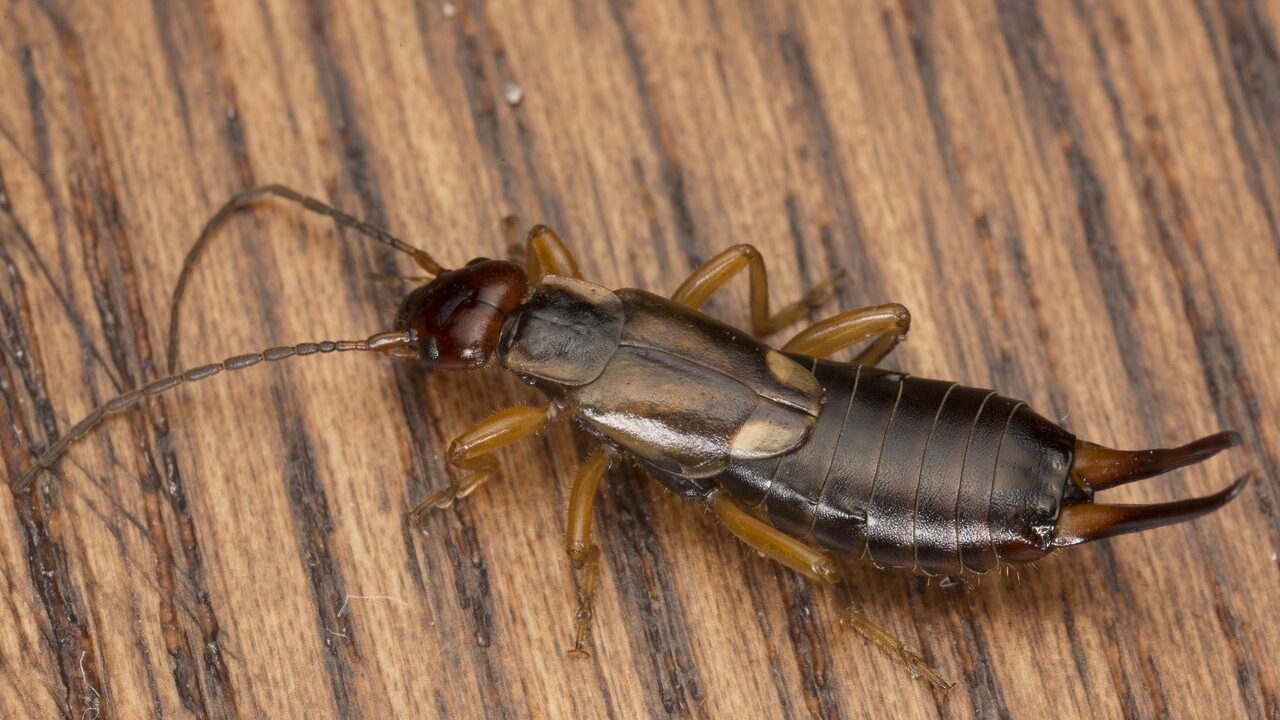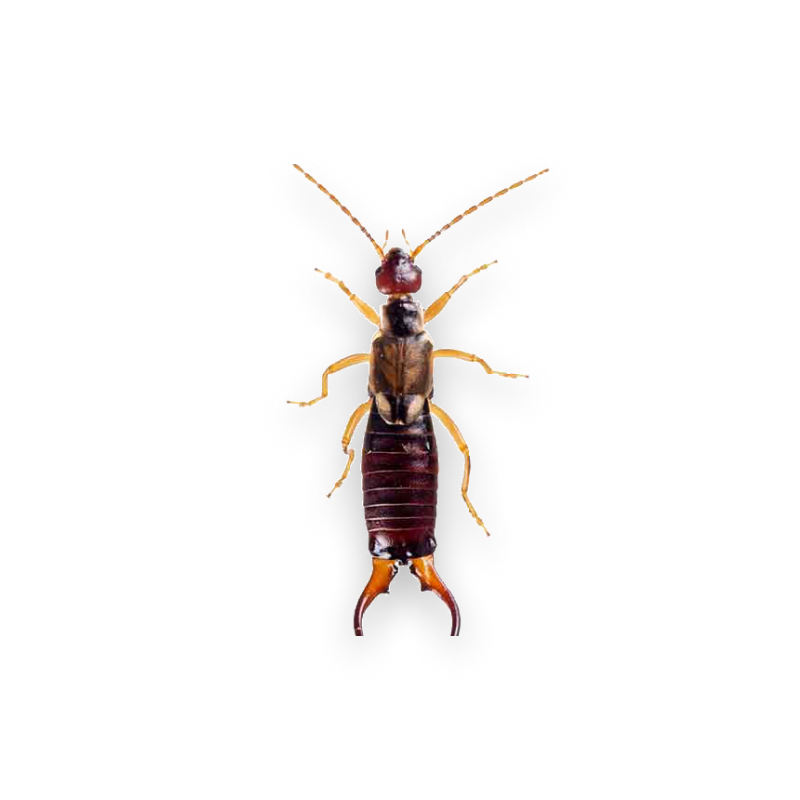Key Takeaways
- Earwigs prefer moist, dark environments and are mostly found outdoors.
- They may enter homes due to weather changes, lights, or accidental hitchhiking.
- Indoor hiding spots include basements, bathrooms, and laundry rooms.
- Sealing entry points and reducing moisture can prevent earwig invasions.
- Earwigs do not infest homes or pose a danger to humans or pets.
 Earwigs are small, nocturnal insects known for their intimidating pincers and secretive habits. While their appearance can be unsettling, they are generally harmless to humans. However, homeowners often find them lurking in unexpected places, raising concerns about infestations.
This comprehensive guide explores earwigs’ preferred habitats, their behaviour, and practical solutions for keeping them out of your home and garden.
Earwigs are small, nocturnal insects known for their intimidating pincers and secretive habits. While their appearance can be unsettling, they are generally harmless to humans. However, homeowners often find them lurking in unexpected places, raising concerns about infestations.
This comprehensive guide explores earwigs’ preferred habitats, their behaviour, and practical solutions for keeping them out of your home and garden.
Key Characteristics of Earwigs
-
Scientific Classification: Earwigs belong to the order Dermaptera and are characterized by their elongated bodies and forceps-like pincers.
-
Diet: Primarily scavengers, they feed on decaying plant material, fungi, and smaller insects. Some species nibble on garden plants.
-
Nocturnal Behavior: Earwigs are most active at night and seek shelter during the day to avoid predators and dehydration.


Not getting a solution?
Get your free pest control estimate today!Where Do Earwigs Live Outdoors?
In nature, earwigs prefer environments that provide ample moisture and shelter. Their outdoor habitats typically include:Common Outdoor Habitats
-
Gardens and Flower Beds 🌱: Earwigs hide under leaves, mulch, and garden debris during the day. Overwatered gardens attract them, and they may nibble on soft plant tissues.
-
Under Rocks, Logs, and Woodpiles 🪵: Cool, shaded areas like logs, rocks, and firewood piles provide ideal shelter. Stacked firewood near the house can bring earwigs closer to indoor entry points.
-
Mulch and Compost Piles ♻️: Organic matter retains moisture, creating an attractive habitat for earwigs. Mulch near the foundation can be a hiding spot, and compost bins provide a food source.
-
Under Patio Furniture and Outdoor Decor 🏡: Damp areas beneath patio furniture, garden decorations, and potted plants serve as shelter, especially in shaded spots.
Why Do Earwigs Enter Homes?
While earwigs primarily live outdoors, they can enter homes under certain conditions. They do not infest homes like cockroaches or ants, but they may wander inside due to:Reasons Earwigs Enter Homes
-
Weather Conditions 🌧️: During dry seasons, they seek moisture indoors. Heavy rain may flood their hiding places, forcing them inside.
-
Attraction to Lights 💡: Earwigs are drawn to artificial lights, leading them to windows, doors, and porch areas at night.
-
Accidental Hitchhiking 🚛: Earwigs can enter homes by clinging to potted plants, firewood, outdoor furniture, newspapers, or cardboard boxes left outside overnight.
-
Structural Gaps and Openings 🏠: Small cracks, unsealed doors, and gaps around windows provide easy entry points for earwigs.

Where Do Earwigs Hide Inside the House?
Once inside, earwigs seek out dark, humid spaces to hide during the day. Common indoor hiding spots include:Indoor Hiding Spots for Earwigs
-
Basements and Crawl Spaces – Damp basements with poor ventilation attract earwigs, especially where leaks or stagnant water are present.
-
Bathrooms and Kitchens – They hide under sinks, bathtubs, and kitchen appliances. Moist towels and bath mats can provide temporary shelter.
-
Laundry Rooms and Utility Areas – Washing machines and humidifiers create moisture, while cluttered storage boxes offer dark retreats.
-
Entryways and Windowsills – Earwigs are often seen near doors and window sills where they enter through small gaps.
How to Prevent Earwigs from Entering Your Home
Keeping earwigs out of your home involves you building a pest-free environment. Here are effective prevention tips:Preventing Earwig Infestations
-
Fix leaky pipes and faucets in basements and bathrooms.
-
Use dehumidifiers in damp areas to reduce moisture levels.
-
Keep gutters clean to prevent water buildup around the foundation.
-
Install weather stripping around doors and windows.
-
Seal cracks and crevices in the foundation, walls, and siding with caulk.
-
Move mulch, firewood, and compost piles away from the house foundation.
-
Trim overgrown bushes and plants to eliminate damp hiding spots.
-
Avoid overwatering plants and gardens to reduce moisture accumulation.
-
Switch to yellow bug lights, which are less attractive to earwigs.
-
Adjust outdoor lights away from doors and windows to prevent attraction.
-
Use diatomaceous earth (DE) to naturally repel and kill earwigs.
-
Apply cedar oil or citrus sprays as natural deterrents.
-
Set homemade earwig traps like rolled-up damp newspapers overnight.

Do Earwigs Infest Homes?
Unlike termites or cockroaches, earwigs do not establish indoor infestations. They may enter homes by accident, but they do not breed or nest indoors. If you see multiple earwigs inside, it’s likely due to:Why Earwigs Appear Indoors
-
A moisture problem attracting them.
-
A nearby outdoor population seeking shelter.
-
Most earwigs die quickly indoors due to the lack of humidity.
Are Earwigs Dangerous to Humans or Pets?
Earwigs may look intimidating, but they are not dangerous.Do’s & Don’ts
DO'S
-
Understand that earwigs do not bite but may pinch if handled.
-
Know that earwigs are non-toxic and do not spread diseases.
-
Keep pets safe; even if they eat an earwig, it’s harmless.
DON'TS
-
Don’t assume earwigs infest homes; they do not breed indoors.
-
Don’t worry about earwigs being poisonous or carrying venom.
 If you feel things have gone out of control, it is advised to contact pest control professionals. Our team can provide a customized approach to protect your home effectively.
Visit our Species, Control, and DIY Guide sections for additional resources on wasps and ways to tackle a wasp infestation.
Prevention techniques might not be enough if you’re already dealing with an infestation in your home. Our pest control professionals provide a customized solution to protect your home effectively.
If you feel things have gone out of control, it is advised to contact pest control professionals. Our team can provide a customized approach to protect your home effectively.
Visit our Species, Control, and DIY Guide sections for additional resources on wasps and ways to tackle a wasp infestation.
Prevention techniques might not be enough if you’re already dealing with an infestation in your home. Our pest control professionals provide a customized solution to protect your home effectively.





